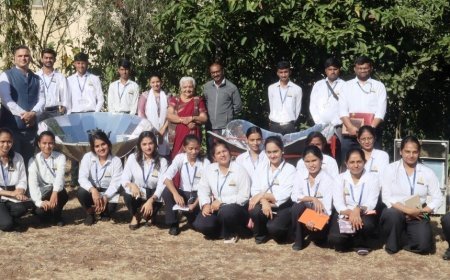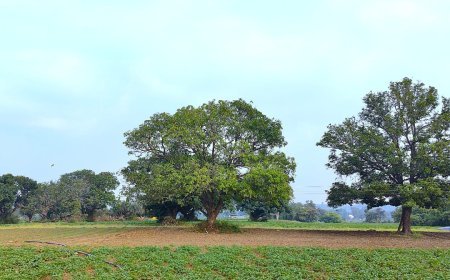News Alert: Don't Spray Paraquat and Glyphosate on Moong Crops, Farmers Warned – Harmful Effects of These Chemicals Unveiled
Farmers in Indore are advised to refrain from using Paraquat and Glyphosate on summer moong crops. These harmful chemicals can lead to severe health issues and environmental damage. Experts urge farmers to explore safer, sustainable alternatives for crop protection. Learn why these chemicals are dangerous and how to protect yourself, your crops, and the environment.

The Agriculture Department has issued a crucial advisory urging farmers not to use Paraquat and Glyphosate (commonly known as "Safaya") on their summer moong crops. Farmers are also advised to minimize pesticide spraying as much as possible to protect both human and environmental health.
Agricultural experts have emphasized that Glyphosate, a widely used herbicide, acts as a plant growth inhibitor by blocking the production of essential amino acids, ultimately killing the plants. It is typically used for killing weeds, especially those with narrow or broad leaves. However, a concerning trend has emerged where farmers are using excessive amounts of Paraquat and Glyphosate to hasten the drying process of their moong crops before harvesting with machinery. This harmful practice not only affects the plants but also poses significant dangers to humans, animals, and the environment.
Paraquat and Glyphosate can cause severe damage to the nervous systems of humans, animals, birds, and aquatic life. The chemicals are not only toxic to crops but also to beneficial microorganisms in the soil, potentially harming the overall ecosystem. The use of these substances can lead to various health issues, including digestive, respiratory, and neurological problems. Exposure to Glyphosate can cause irritation in the eyes, skin, nose, and throat, as well as asthma. If ingested, it can cause intense irritation, pain, and nausea.
In response to this alarming practice, experts are advising farmers to rely on more sustainable and eco-friendly agricultural practices that minimize the use of harmful chemicals, ensuring the safety of both crops and the environment. This advisory aims to encourage farmers to explore safer alternatives, including organic farming methods and eco-friendly pesticides, to maintain crop health without risking human or environmental well-being.








































